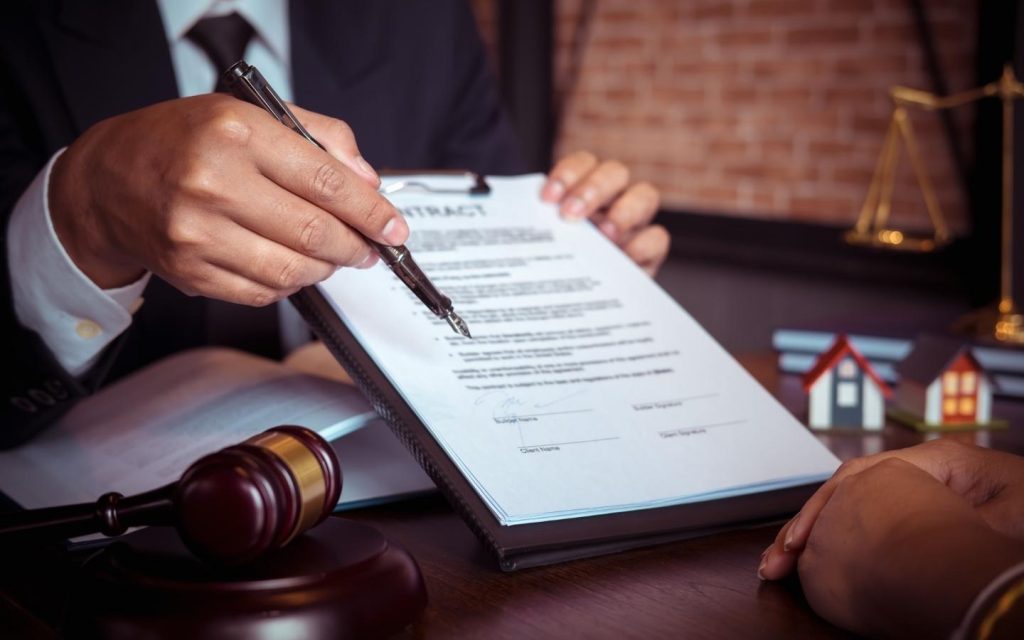The Dos and Don’ts of Divorce
Divorce can be a challenging and emotional process, but it’s important to approach it with the right mindset and guidance. Hiring a divorce lawyer can help you navigate the complexities of divorce, but there are also certain dos and don’ts to keep in mind. In this article, we’ll explore some valuable lessons from a top divorce lawyer on what to do and what not to do during a divorce.
Table of Contents
ToggleDos:
Do Prioritize Your Children’s Well-Being
Divorce can be tough on children, and it’s important to prioritize their well-being throughout the process. This means avoiding any behavior that could negatively affect your children, such as bad-mouthing your ex-partner or using them as a bargaining chip in negotiations. Instead, focus on providing a stable and supportive environment for your children, and consider working with a family therapist to help them cope with the changes.
Do Be Honest with Your Lawyer
Your divorce lawyer is there to support you and help you achieve the best possible outcome, but they can only do this if you’re honest with them. This means providing all relevant information, even if it may not be favorable to your case. Remember, your lawyer is bound by confidentiality, so you can trust them to keep your information private.
Do Prioritize Your Mental Health
Divorce can take a toll on your mental health, so it’s important to prioritize self-care during this time. This means seeking out support from friends and family, as well as from a therapist or support group. Taking care of your mental health can also help you make better decisions during the divorce process.
Do Consider Mediation
Mediation can be a cost-effective and less stressful alternative to litigation. During mediation, a neutral third party will help you and your ex-partner come to an agreement on issues such as property division, child custody, and spousal support. Mediation can also be more flexible than litigation, allowing you to come up with creative solutions that work for both parties.
Do Keep Records of Communication
Keeping records of communication with your ex-partner can be important during a divorce. This can include emails, text messages, and voicemails, as well as any written agreements or documents. These records can help support your case in court, and can also help you keep track of important information and deadlines.
Do Be Open to Compromise
Divorce is often a negotiation, and it’s important to be open to compromise. This means being willing to give up some of your demands in order to reach an agreement that works for both parties. Remember, a successful negotiation is one where both parties feel like they’ve achieved a fair outcome.
Don’ts:
Don’t Use Social Media to Vent
Social media can be a tempting outlet for venting about your ex-partner, but this can be damaging to your case. Anything you post on social media can be used as evidence in court, and can also negatively affect negotiations. It’s best to avoid posting anything related to your divorce on social media, and to keep your private life offline.
Don’t Make Decisions Based on Emotions
Divorce can be an emotional process, but it’s important to make decisions based on logic and reason. This means avoiding making impulsive decisions based on anger or hurt, and instead taking the time to think through your options. It can also be helpful to consult with your lawyer or a therapist before making any major decisions.
Don’t Hide Assets
Hiding assets during a divorce can have serious legal consequences, including fines and even jail time. It’s important to be transparent about your assets and income, and to provide all relevant financial information to your lawyer. Trying to hide assets can also damage your credibility in court, and can make negotiations more difficult.
Don’t Involve Your Children in Adult Matters
Divorce can be tough on children, but involving them in adult matters can make it even harder. This means avoiding discussing legal or financial matters with your children, and avoiding putting them in the middle of negotiations or conflicts. Instead, focus on providing a stable and supportive environment for your children, and consider working with a family therapist to help them cope with the changes.
Don’t Disregard the Importance of Legal Advice
It’s important to seek legal advice from a qualified divorce lawyer during the divorce process. Your lawyer can help you navigate the legal complexities of divorce, and can provide valuable guidance on how to achieve the best possible outcome. Ignoring legal advice or attempting to handle the divorce process on your own can lead to costly mistakes and can negatively impact your case.
Don’t Rush the Process
Divorce can be a long and challenging process, but rushing through it can lead to costly mistakes. It’s important to take the time to think through your options, consult with your lawyer, and consider the long-term implications of any decisions you make. Rushing through the process can also make negotiations more difficult and can lead to an outcome that you may regret in the future.
Dos:
| Dos | Description |
|---|---|
| Prioritize your children’s well-being | Focus on providing a stable and supportive environment for your children throughout the divorce process |
| Be honest with your lawyer | Provide all relevant information to your lawyer, even if it may not be favorable to your case |
| Prioritize your mental health | Seek out support from friends, family, and a therapist to prioritize your mental health |
| Consider mediation | Mediation can be a cost-effective and less stressful alternative to litigation |
| Keep records of communication | Keep records of all communication with your ex-partner, including emails, text messages, and voicemails |
| Be open to compromise | Be willing to compromise in order to reach an agreement that works for both parties |
Don’ts:
| on’ts | Description |
|---|---|
| Use social media to vent | Avoid posting anything related to your divorce on social media, and keep your private life offline |
| Make decisions based on emotions | Take the time to think through your options and avoid making impulsive decisions based on anger or hurt |
| Hide assets | Be transparent about your assets and income, and provide all relevant financial information to your lawyer |
| Involve your children in adult matters | Avoid discussing legal or financial matters with your children and avoid putting them in the middle of negotiations or conflicts |
| Disregard the importance of legal advice | Seek legal advice from a qualified divorce lawyer to navigate the legal complexities of divorce |
| Rush the process | Take the time to think through your options, consult with your lawyer, and consider the long-term implications of any decisions you make |
Conclusion
Divorce can be a challenging and emotional process, but following these dos and don’ts can help you navigate the process more effectively. By prioritizing your children’s well-being, being honest with your lawyer, and seeking support for your mental health, you can better manage the emotional toll of divorce. Consider mediation as a cost-effective and less stressful alternative to litigation, and be open to compromise in order to reach an agreement that works for both parties.
On the other hand, avoiding social media venting, making decisions based on emotions, hiding assets, and involving children in adult matters can negatively impact your case. Seeking legal advice and taking the time to think through your options can help you avoid costly mistakes and achieve the best possible outcome.




